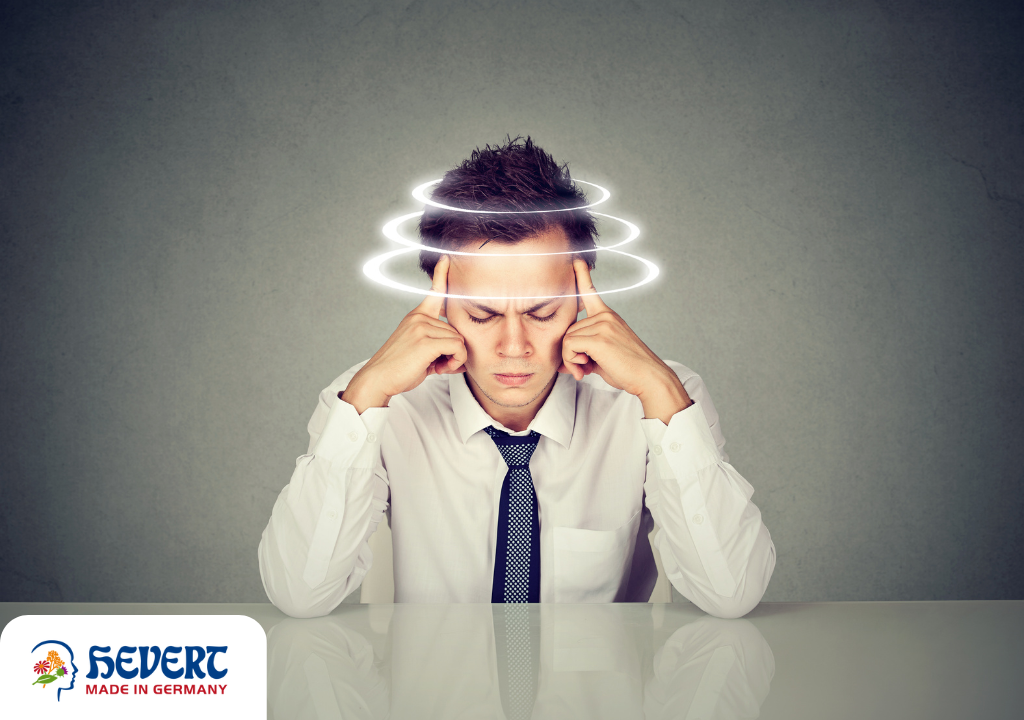Millions of individuals worldwide suffer from the disorienting and frequently terrifying ailment known as vertigo. Understanding the causes of vertigo, symptoms of vertigo, and potential effective treatment options of spinning or dizziness is crucial because it may be a distressing condition. We will examine the complexities of vertigo in this extensive guide, illuminating its several manifestations and examining the best approaches to treat this illness.
Introduction: What Is Dizziness?
Vertigo is more than just a common case of vertigo. This particular type of dizziness is typified by an illusion of movement or spinning. You may experience the sensation that either you or your surroundings are spinning as a result of this illusion. Since the causes and treatments of vertigo and other types of dizziness can differ greatly, it is critical to distinguish between the two.
Part 2: Vertigo Types and Causes of Vertigo
Peripheral and central vertigo are the two main varieties. Central vertigo is linked to disorders in the brain or its connections, whereas peripheral vertigo is related to difficulties in the inner ear. Let's examine the typical reasons for each kind:
Peripheral dizziness: The most frequent cause of peripheral vertigo is benign paroxysmal positional vertigo (BPPV), which is frequently brought on by head movements.
Meniere's Disease: An inner ear condition marked by repeated bouts of dizziness, hearing loss, and tinnitus. Viral infections affecting the inner ear cause vestibular neuritis and labyrinthitis, which cause dizziness and problems with balance. Vertigo may be caused by an acoustic neuroma, a noncancerous tumour on the vestibular nerve.
Central Dizziness: Vestibular migraine: Vertigo is a symptom that some people with migraines encounter. Vertigo can be a symptom of multiple sclerosis, an autoimmune condition that affects the central nervous system.
Stroke: Vertigo may occasionally accompany other neurological symptoms following a stroke.
Brain tumours: These tumours can cause vertigo by interfering with the brain's balance systems.
Identifying the Symptoms:
Many symptoms are frequently present with vertigo, and these might vary according on the underlying reason. Typical symptoms consist of:
intense feeling of whirling
vomiting and queasiness
Perspiring
An unsteadiness or imbalance
Nystagmus, or uncontrollably moving eyes
Tinnitus or loss of hearing
Head Pain
Deficiency
speaking or swallowing difficulties (in severe situations)
Evaluation:
An accurate Vertigo diagnosis is essential for the successful treatment of vertigo. Medical practitioners can identify the root cause by using a variety of diagnostic techniques and tests. These may consist of:
- physical assessment
- neurological assessment
- sanguine tests
- Tests for hearing and audiometry
- scans for imaging (MRI or CT scans)
- Tests of vestibular function
Options for Treatment:
The underlying cause of vertigo plays a major role in how it is treated. The following are a few of the best available treatments:
The Epley Maneuver (for BPPV) is a set of head and body motions that can be used to realign inner ear calcium crystals, thereby reducing vertigo.
Vertigo Medication:
To address underlying balance disorders or control symptoms, doctors may prescribe medications such as vestibular suppressants, antiemetics, and antihistamines.
Physical treatment:
Vertigo Exercises for balance improvement and a reduction in the intensity and frequency of vertigo episodes are part of vestibular rehabilitation therapy (VRT).
Lifestyle Modifications:
You can prevent or lessen vertigo symptoms by making dietary adjustments, managing your stress, and avoiding triggers like alcohol and caffeine.
Surgery (in extreme cases):
To remove tumours or release pressure on the vestibular nerve, surgical procedures may be explored.
The goal of the canalith repositioning procedures is to realign misplaced ear crystals within the inner ear.
Homeopathy Medication:
Homeopathy is an alternate medication option which gives relief to your Vertigo problems. You can try Hevert Vertigo Relief. This helps with Age Related Dizziness, Motion Sickness While Travelling, Vertigo With Nausea and other symptoms related to Vertigo.
Coping Mechanisms:
Although having vertigo can be difficult, there are strategies to control and get by with its effects:
To lower the risk of dehydration, keep a balanced diet and stay hydrated.
Steer clear of abrupt head movements and stand up gradually to avoid falling.
If required, make use of assistive technology like walkers or canes.
In order to control the anxiety and depression that often accompany chronic vertigo, think about getting psychological support or counselling.
How to Avoid Vertigo:
Although preventing vertigo isn't always achievable, there are things you can do to lessen your chance:
- Keep your ears healthy and shield them from loud noises.
- Drink plenty of water and eat a balanced diet.
- Use calming methods to manage your stress, such as yoga and meditation.
- When taking drugs that could impair your inner ear and balance, use caution.
- See a doctor frequently to identify and treat any underlying illnesses as soon as possible.
In summary
There are several causes, symptoms, and treatment options for vertigo, making it a complex disorder. The first step to effective treatment and managing and, in certain situations, preventing vertigo is understanding its nature. Vertigo sufferers can live better, more balanced lives by modifying their lifestyles and collaborating closely with medical practitioners. It's important to remember that while vertigo can be challenging, there are ways to overcome it and regain control over your life.

